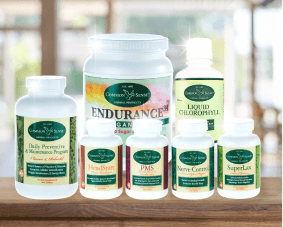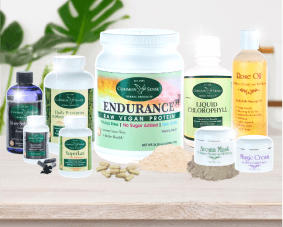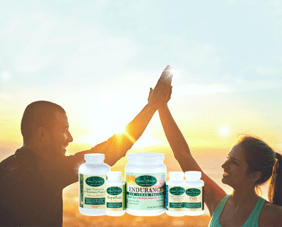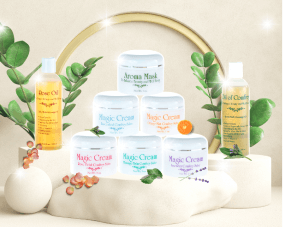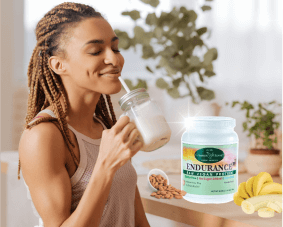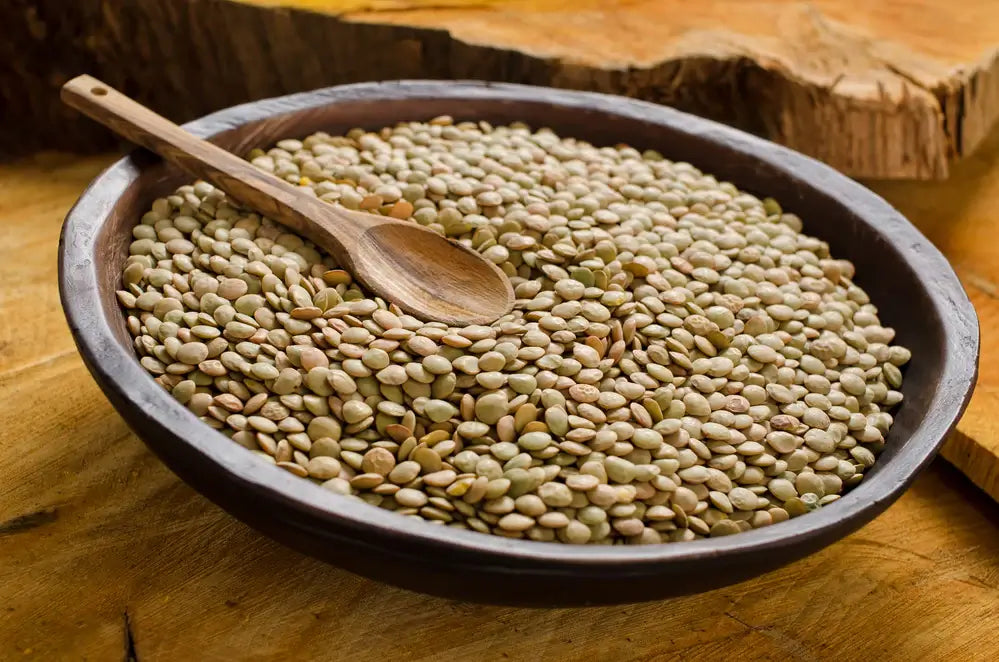
Shifting away from animal products has become easier due to the amount of research being done that is showing us how much protein can be consumed through plant-based foods. Vegan protein sources are more than capable of providing all of the nutritional requirements for both adults and children while promoting a healthy, well-balanced diet.
12 Amazing Natural Vegan Protein Sources
1. Lentils
Rich in protein, iron, potassium, and fiber, red or green lentils are full of key nutrients that are easily added to your lunch or dinner routine. They can be cooked ahead of time, sprinkled onto salads, or added to stews or curries to give an extra source of protein. A half-cup of cooked lentils contains 8.84g of protein.
2. Quinoa
Quinoa is a complete protein, containing 8g of protein in each cooked cup. This grain is rich in magnesium, fiber, iron, and manganese, making it nutrient-rich and versatile. It can be a great substitute for pasta in stews or soups or seasoned and eaten as a main course or side dish. Quinoa can also be sprinkled on salads for an added splash of protein.
3. Tofu, Edamame, and Tempeh
Soy products are some of the richest protein sources in a plant-based diet. These soy products contain great levels of calcium and iron, making them healthy substitutes for dairy products. Tofu and tempeh are popular meat substitutes because of their ability to take on the flavor of the dish they are being prepared in. These protein sources adapt well to many cooked meals, while also being a delicious addition to your favorite soup or sandwich.
It's important to note that the protein content can vary depending on how the soy is prepared. For example, a half cup of firm tofu contains around 10g of protein, while a half cup of edamame beans contains 8.5g of protein. Tempeh contains an impressive 15g of protein in each half cup.
4. Peanuts
Peanuts are full of healthy fats and are protein-rich. They have been known to improve heart health while containing about 20.5g of protein in each half cup. Peanut butter is a great source of protein, containing 3.6 g per tablespoon. When possible, opt for natural peanut butter because it typically contains less added sugar, thus making it a healthier snack option.
5. Chickpeas
Chickpeas are a versatile and protein-rich legume, containing about 7.25g of protein per half-cup when cooked. Chickpeas can be eaten cold, either alone or on salads, or they can be cooked and included in your favorite recipes, such as stews or curries. They are also delicious when roasted in the oven with various spices, or they can be made into a paste to be enjoyed as hummus on your favorite sandwich or as a dip.
6. Almonds
Almonds are an excellent source of vitamin E, a vitamin that is particularly beneficial to the skin and eyes. Just a half-cup of this tree nut offers 16.5g of protein. Almonds are the perfect addition to any snack. Eat them raw, salted, or sliced on top of your favorite salad. Try them toasted for an especially flavor-rich protein snack.
7. Spirulina
Spirulina is a green or blue alga containing about 4g of protein in each tablespoon. It is also nutrient-rich, containing iron, manganese, and B vitamins, but not vitamin B-12. Spirulina can be consumed as a supplement or powder, easily added to water, juice, or smoothies. It is also great for adding to salads or snacks.
8. Endurance34
Our specially formulated raw vegan protein powder is the ideal supplement for a healthy lifestyle. It contains plant-based iron and a complete amino acid profile to support muscle recovery and muscle function. This hypoallergenic and gluten-free protein source has no added sugar, dairy, or artificial colors or preservatives, making it the perfect way to incorporate protein naturally into your daily diet by mixing it into your favorite non-dairy beverage, even water.
9. Chia Seeds and Hemp Seeds
Chia seeds and hemp seeds are low in calories and rich in fiber and Omega-3 fatty acids. They are a complete source of protein, with each tablespoon of chia seeds containing 2g of protein, and each tablespoon of hemp seeds containing 5g of protein. These seeds are virtually tasteless, making them a great addition to smoothies or plant-based yogurt. Try soaking chia seeds to make a delicious pudding from water or almond milk.
10. Beans and Rice
When eaten together, a cup of rice and beans can hold 7g of protein. Separately, however, beans and rice are incomplete protein sources. Try them together as a side dish, or mix them up with hummus and spread on a protein-rich bread for a savory, plant-based meal that's packed with protein.
11. Potatoes
Potatoes are a great source of protein and are also high in potassium and vitamin C, among other key nutrients. There are 8g of protein per serving of a large baked potato. Add a couple of tablespoons of hummus for a creamy, flavorful snack that has a higher protein content than a potato with butter or sour cream.
12. Dark, Leafy Greens
While dark-colored, leafy greens contain protein, they are not a complete protein on their own. However, adding vegetables to snacks and meals can increase protein intake, especially when combined with other foods that are rich in protein, such as a salad with quinoa, or broccoli with shaved almonds.
Transitioning to a vegan or vegetarian diet can take some planning, but making sure you are consuming enough protein will not be a concern seeing as so many natural foods are vegan protein sources. We believe that what you eat today will affect you tomorrow, and we want those effects to be positive. Contact Common Sense Herbs today to let us help you get started with the herbs and supplements that will empower you to create a healthier lifestyle.

